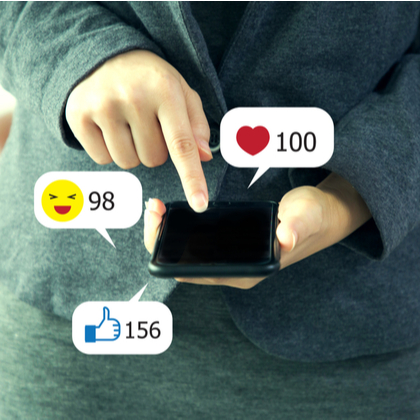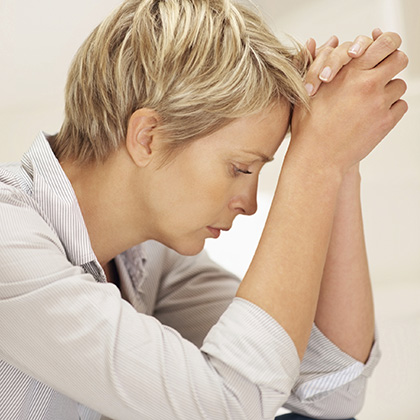
Comparing yourself to other people may be the quickest way to feel dissatisfied with your life. But the truth is, we all do it.
Think about who you’ve compared yourself to today. A friend who is financially better off than you, perhaps? Someone you went to school with whose career is far more successful or fulfilling than yours? An acquaintance who’s just announced their engagement to a partner who’s better looking/richer/more successful (delete as appropriate) than your other half?
Yet social comparison does have its advantages. Experts believe it’s a fundamental human tendency that’s one of the most common features of our lives. Looking to other people for information about how to think, feel and behave, they say, it has given us the ability to thrive in a highly complex modern social world (i). And by comparing ourselves with others in terms of a number of different qualities – including attractiveness, financial wealth, success and intelligence – we can better evaluate ourselves.
What is social comparison theory?
The theory of what’s actually happening when we compare ourselves to others started back in the 1950s with the psychologist Leon Festinger. In his 1954 study (ii), Festinger said we can’t define ourselves independently, so we need to work out who we are by working out how we stack up in relation to other people. In other words, social comparison is how we define our own social and personal worth.
There are two kinds of social comparison. First, upward social comparison is when we compare ourselves to people we think are better than us in some way. On a positive level this can be helpful, as it can improve our motivation to better ourselves or to feel more hopeful about ourselves or something we’re trying to do (for instance, you may use a photograph of someone at their graduation ceremony, if you’re trying to do better at your studies).
The other kind is downward social comparison. This is when we compare ourselves to people we believe are worse off than us. And we usually do this to give our self-esteem a bit of a boost, as it can help us to feel better about ourselves and our lives.
There are, however, downsides to both types of social comparison. If you frequently make negative upward comparisons, for instance, it can leave you with persistent feelings of inferiority, dissatisfaction and guilt – all emotions that can have a negative effect on your mental wellbeing. And while downward social comparison may often be a quick and easy way to make you feel better about yourself, that feeling may not last long. It’s also possible that downward comparison could lead to dissatisfaction too, since it may remind you there’s always the possibility your situation (or whatever you’re using for the comparison) could get worse.
What are the dangers of comparison on social media?
While the theory of social comparison has been around for decades, the practice has become more pervasive than ever in recent years thanks to our use of social media.
In the real world we have a limited number of people we can compare ourselves with, such as friends, family, co-workers and acquaintances. But social media has given us access to an almost endless supply of people to weigh ourselves up against. And much of the time, these comparisons aren’t exactly positive. Who, for instance, hasn’t scrolled through other people’s posts and wished we had what they had? How often have we felt sad or inadequate about our own lives and achievements after spending just a few minutes on Instagram or Facebook?
Indeed, social media takes social comparison to a whole new level. With one click we can see who is earning more money than we are, having more holidays, looking younger/thinner/happier, having better relationships, eating better food and generally enjoying life more. The problem is that it’s not always easy to remember that those posts we see are simply the highlights of other people’s lives. They are ideal versions people have created of themselves and their lives, not their real, day-to-day lives, warts and all.
Yet most of us still tend to compare ourselves and our real lives with other people’s ideal lives. It’s hardly a fair comparison, but we can’t help it because we’re hard-wired to evaluate ourselves by looking at others. However, being more aware of social comparison – online or offline – can be the first step towards being less vulnerable to its negative effects.
Why do we feel jealous of others?
It’s natural to feel jealous of someone who seems better than you in any way. But constant feelings of envy can eat away your self-esteem. So try to appreciate the people in your life who’ve achieved something you aspire to instead of envying them. This isn’t always easy to do, so try to think how their successes could make your life better too. For example, instead of feeling jealous of a friend who’s lost a lot of weight while your weight-loss attempts have all fallen by the wayside, try to be inspired by their achievements or ask if they could give you some motivational advice.
How to stop comparing yourself to others
It’s probably true that we’ll never completely stop comparing ourselves to others. However if you can learn to notice all those times when you make social comparisons you can also train yourself to not do it so often, or at least care less about it when it’s working against you rather than for you. Here are a few things that may help:
Be realistic
Whenever you catch yourself comparing yourself to someone who seems to be better than you in some way, try replacing the thought that they are more successful/attractive/popular/wealthier etc. with something more realistic.
Try to remind yourself that while they may well seem to be better than you in that one respect, the truth is you don’t know all the tiny details of their life, and they too are bound to struggle with at least some aspect of it. If it helps, try to imagine what that struggle might be, or think about ways that they might compare themselves negatively to you. You may, for instance, envy their ideal lifestyle, but do they have your generous spirit or strength of character?
Another version of this idea is to replace negative thoughts about yourself with positive ones. Whenever you compare yourself to someone else in a negative way, try to turn that thought around. For instance if you’re envious of someone who seems more popular online than you are, remind yourself that – while you may not have so many Facebook friends or Instagram likes – you have some really good real-life friends who you wouldn’t swap for all the ‘digital’ or social media friends in the world.
Practising gratitude help with anxiety
Comparing yourself with other people can often make you focus on what you don’t have. Instead, try to think about all the things you have and feel grateful for in your life. You could also keep a gratitude journal to remind yourself of the good things you have that you may be taking for granted. These can be the people you value in your life, places you’ve been, experiences you’ve had – or whatever makes you feel happy. Don’t just make a list of these things, but also write down why they make you happy and why you appreciate them. Add to your journal frequently.
Taking a look in your gratitude journal whenever you’re tempted to compare yourself negatively to someone can help prevent feelings of inferiority. Focusing on the good and positive in your life could even make you less likely to make negative comparisons in the first place.
Spend less time online
If you tend to feel dissatisfied with your life after comparing yourself with others on social media, one obvious way to feel happier with your lot is to log off altogether. However, this is easier said than done, and few of us these days manage to avoid staying online for very long.
So instead of trying to avoid the internet altogether, try imposing limits on how much time you spend on websites such as Facebook, Twitter or Instagram. However, remember that even a few minutes of using social media can lead to negative comparisons.
If you’re having issues with your body image you could also try avoiding websites and magazines that promote ideal images – fashion magazines, for instance, or certain reality TV shows. Try taking a week or two off the offending media every now and then – it could give your self-esteem a welcome, albeit temporary, boost.
Natural supplements for mental wellbeing
If left unchecked, making frequent negative social comparisons can lead to stress, anxiety and depression in many of us. Learning to compare ourselves less often is a good step forward. But in the meantime taking certain herbal and nutritional supplements may also give us some of the support we need to manage negative feelings more effectively:
St John’s wort
The herb St John’s wort is often used for the relief of slightly low mood and mild anxiety, based on traditional use only. There’s some evidence it may be more effective than a placebo at treating mild to moderate depression (iii), with studies suggesting it may be as effective as some popular prescription antidepressants (iv).
Always consult your GP or pharmacist before taking St John’s wort as it can interact with some other medicines.
Ashwagandha
Ashwagandha is a traditional Ayurvedic herb often used to help with stress as well as tiredness and fatigue. One study suggests it may help reduce levels of the stress hormone cortisol (v), while another discovered 88 per cent of people feel less anxious after taking it (vi). Some experts think ashwagandha may help with stress because it affects the hypothalamus (a small region in the brain) and its interaction with the pituitary and adrenal glands (the hypothalamus-pituitary-adrenal axis is thought to play a role in the body’s stress response (vii)).
Rhodiola Rosea
Rhodiola rosea is another herb that’s used traditionally for stress relief, thanks to its many active ingredients such as rosavins and salidrosides. Scientists have found rhodiola may reduce anxiety and stress more effectively than a placebo (viii), and that it may also prevent chronic stress and stress-related complications (ix).
If you want to try rhodiola, look for a supplement that guarantees a potent 3% level of rosavins.
High-strength multivitamin and mineral
Taking a good-quality multivitamin can help make sure your body is getting all the nutrients you need, but it may help you manage stress too. One study suggests taking a multivitamin helps you cope better with stressful situations (x), while another has found multivitamin supplements may help boost mood and improve feelings of day-to-day wellbeing (xi).
5-HTP
If comparing yourself to others is making you feel low, one of the nutritional supplements you may like to try is 5-Hydroxytryptophan – or 5-HTP. This is a natural amino acid, and studies suggest it may be as effective as conventional antidepressants (xii). There’s also some evidence that 5-HTP may help with anxiety disorders (xiii).
Fish oils
The omega-3 fatty acids found in oily fish are thought to have a variety of health benefits, including reducing the symptoms of depression. There is some evidence to back this up, with one meta-analysis of 26 studies finding an overall beneficial effect of omega-3s on depression symptoms (xiv).
You can get omega-3 fatty acids by eating more oily fish such as salmon, trout, herring, mackerel, pilchards and sardines, or by taking fish oil supplements. Vegetarian and vegan omega-3 supplements are also more widely available these days. These supplements source their active ingredients from plant organisms called microalgae rather than fish.
We’re probably never going to stop comparing ourselves to other people. But there are ways to stay more positive and to recognise when the habit can become harmful to our mental health. For more advice on managing your emotions, why not visit the mental health section of our health library?
References:
-
Baldwin. M., Musweiler T., The culture of social comparison. PNAS. 2018 Sep 25;115(39):E9067-E9074. Available online: https://www.pnas.org/content/115/39/E9067
-
Festinger L A theory of social comparison processes. Human Relations. 1954;7(2):117-140. Available online: https://journals.sagepub.com/doi/10.1177/001872675400700202
-
Kasper S. et al., Superior efficacy of St Johns wort extract WS® 5570 compared to placebo in patients with major depression: a randomized, double-blind, placebo-controlled, multi-center trial. BMC Med. 2006 Jun 23Available online: https://bmcmedicine.biomedcentral.com/articles/10.1186/1741-7015-4-14
Uebelhack R. et al., Efficacy and tolerability of Hypericum extract STW 3-VI in patients with moderate depression: a double-blind, randomized, placebo-controlled clinical trial. Adv Ther. 2004;21:265-75. Available online: https://link.springer.com/article/10.1007/BF02850158 -
Singer A. et al., Duration of response after treatment of mild to moderate depression with Hypericum extract STW 3-VI, citalopram and placebo: a reanalysis of data from a controlled clinical trial. Phytomedicine. 2011;18(8-9):739-742. Available online: https://www.sciencedirect.com/science/article/abs/pii/S0944711311000924?via%3Dihub
Bjerkenstedt L. et al., Hypericum extract LI 160 and fluoxetine in mild to moderate depression, A randomized, placebo-controlled multi-center study in outpatients. Eur Arch Psychiatry Clin Neurosci. 2004 Nov 12. Available online: https://link.springer.com/article/10.1007%2Fs00406-004-0532-z -
Chandrasekhar . K, Kapoor. J, Anishetty. S. A prospective, randomized double-blind, placebo-controlled study of safety and efficacy of a high-concentration full-spectrum extract of ashwagandha root in reducing stress and anxiety in adults. Indian J Psychol Med. 2012 Jul;34(3):255-62.Available online: https://www.ncbi.nlm.nih.gov/pmc/articles/PMC3573577/
-
Anrade C. et al., A double-blind, placebo-controlled evaluation of the anxiolytic efficacy ff an ethanolic extract of withania somnifera. Indian J Psychiatry. 2000 Jul;42(3):295-301. Available online: https://www.ncbi.nlm.nih.gov/pubmed/21407960
-
Lopresti A. et al., An Investigation Into the Stress-Relieving and Pharmacological Actions of an Ashwagandha (Withania Somnifera) Extract: A Randomized, Double-Blind, Placebo-Controlled Study. Medicine (Baltimore). 2019 Sep;98(37). Available online: https://pubmed.ncbi.nlm.nih.gov/31517876/
-
Cropley M. et al., The Effects of Rhodiola rosea L.Extract on Anxiety, Stress, Cognition and Other Mood Symptoms. Phytother Res. 2015 Dec;29(12):1934-9. Available online: https://www.ncbi.nlm.nih.gov/pubmed/26502953
-
Anghelescu IG. et al., Stress Management and the Role of Rhodiola rosea: A Review. Int J Psychiatry Clin Pract. 2018 Nov;22(4):242-252. Available online: https://www.tandfonline.com/doi/full/10.1080/13651501.2017.1417442
-
Schlebusch L. et al., A double-blind, placebo-controlled, double-centre study of the effects of an oral multivitamin-mineral combination on stress. S Afr Med J. 2000;90:1216-1223. Available online: https://pubmed.ncbi.nlm.nih.gov/11234653/
-
Harris E. et al., The Effect of Multivitamin Supplementation on Mood and Stress in Healthy Older Men. Hum Psychopharmacol. 2011 Dec;26(8):560-7. Available online: https://pubmed.ncbi.nlm.nih.gov/22095836/
-
Byerley WF. et al., 5-hydroxytryptophan: a review of its antidepressant efficacy and adverse effects. J Clin Psychopharmacol. 1987;7:127-137. Available online: https://pubmed.ncbi.nlm.nih.gov/3298325/
Poldinger. W, Calanchini. B, Schwarz. W. A functional-dimensional approach to depression: Serotonin deficiency as a target syndrome in a comparison of 5-hydroxytryptophan and fluvoxamine. Psychopathology. 1991;24:53-81.Available online: https://pubmed.ncbi.nlm.nih.gov/1909444/
-
Kahn RS. et al., Effect of a serotonin precursor and uptake inhibitor in anxiety disorders; a double-blind comparison of 5-hydroxytryptophan, clomipramine and placebo. Int Clin Psychopharmacol. 1987;2:33-45. Available online: https://pubmed.ncbi.nlm.nih.gov/3312397/
-
Liao Y. et al., Efficacy of omega-3 PUFAs in depression: A meta-analysis. Translational Psychiatry. 2019;190(9). Available online: https://www.nature.com/articles/s41398-019-0515-5#
You Might Also Like
Disclaimer: The information presented by Nature's Best is for informational purposes only. It is based on scientific studies (human, animal, or in vitro), clinical experience, or traditional usage as cited in each article. The results reported may not necessarily occur in all individuals. Self-treatment is not recommended for life-threatening conditions that require medical treatment under a doctor's care. For many of the conditions discussed, treatment with prescription or over the counter medication is also available. Consult your doctor, practitioner, and/or pharmacist for any health problem and before using any supplements or before making any changes in prescribed medications.

Christine
Christine Morgan has been a freelance health and wellbeing journalist for almost 20 years, having written for numerous publications including the Daily Mirror, S Magazine, Top Sante, Healthy, Woman & Home, Zest, Allergy, Healthy Times and Pregnancy & Birth; she has also edited several titles such as Women’ Health, Shine’s Real Health & Beauty and All About Health.
View More



